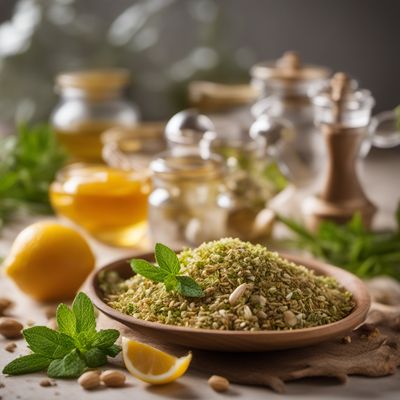
Ingredient
Herbal infusions (beverages) specific for infants and young children, liquid
Nurturing Little Ones: Exploring Herbal Infusions for Infants and Young Children
Herbal infusions for infants and young children are liquid beverages made by steeping a combination of herbs in hot water. These infusions are created with the utmost care, using herbs that are safe and beneficial for young ones. The resulting beverage is mild, flavorful, and free from caffeine or artificial additives. The liquid is typically clear or lightly colored, with a delicate aroma and a gentle taste that appeals to young palates. The texture is smooth and easy to consume, making it suitable for infants and young children.
Origins and history
The tradition of using herbal infusions for infants and young children dates back centuries, with various cultures incorporating herbal remedies into their child-rearing practices. Different regions have their own unique blends of herbs, often passed down through generations. These infusions have been valued for their potential health benefits and soothing properties, providing comfort to little ones during times of discomfort or restlessness.
Nutritional information
Herbal infusions for infants and young children provide a hydrating and comforting beverage option, offering essential fluids without any added sugars or artificial ingredients.
Allergens
It is important to note that some infants and young children may have allergies or sensitivities to specific herbs used in herbal infusions. Common allergens associated with these infusions include chamomile, fennel, or mint. Care should be taken to introduce new herbs gradually and monitor for any adverse reactions.
How to select
When selecting herbal infusions for infants and young children, it is crucial to choose reputable brands or sources that prioritize quality and safety. Look for products that are specifically labeled for infants and young children, ensuring that they are free from additives, preservatives, or potential allergens. Additionally, consider consulting with a healthcare professional or pediatrician for guidance on suitable herbal blends for your child's specific needs.
Storage recommendations
To maintain the freshness and quality of herbal infusions for infants and young children, store them in a cool, dry place away from direct sunlight. Follow the storage instructions provided by the manufacturer or consult with a healthcare professional for specific recommendations.
How to produce
Producing herbal infusions for infants and young children at home requires careful research and consideration of the herbs used. It is recommended to consult with a pediatrician or herbalist to ensure the safety and appropriateness of the chosen herbs. The process involves steeping the selected herbs in hot water, straining the liquid, and allowing it to cool before serving to the child.
Preparation tips
When preparing herbal infusions for infants and young children, follow the instructions provided by the manufacturer or the guidance of a healthcare professional. It is important to use the recommended amount of herbs and steep them for the appropriate duration to achieve the desired flavor and benefits. Always ensure that the infusion has cooled to an appropriate temperature before serving to the child.
Culinary uses
Herbal infusions for infants and young children are primarily used as a soothing and hydrating beverage option. They can be served on their own or mixed with breast milk or formula to provide a gentle flavor variation. These infusions are not typically used as ingredients in other culinary preparations.
Availability
Herbal infusions for infants and young children are commonly available in various regions and countries, both in physical stores and online platforms. However, availability may vary depending on local regulations and cultural preferences.


